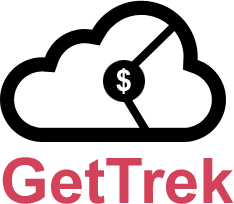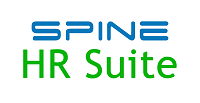Description

GCPAY

Paylite
Comprehensive Overview: GCPAY vs Paylite
As of my last update in October 2023, GCPAY and Paylite are two financial technology solutions catering to different industries with specific functionalities. Here's a comprehensive overview:
GCPAY
a) Primary Functions and Target Markets:
-
Primary Functions:
GCPAY is a software solution designed for the construction industry to streamline payment processes. It automates the construction payment applications and approval processes, including features like lien waiver management, compliance tracking, and document management. GCPAY helps simplify the complex payment structures typical of construction projects, ensuring timely payments, reducing errors, and improving efficiency and transparency in financial transactions. -
Target Markets:
Its primary target market includes construction companies, general contractors, subcontractors, and other stakeholders in the construction sector who require a specialized solution to manage complex contractual payments efficiently.
b) Market Share and User Base:
- While specific market share and user base data might not be publicly available, GCPAY is recognized as a niche solution specifically tailored for the construction industry. Its market penetration would typically be less widespread than multi-industry payment platforms but expects a concentrated user base within this niche market.
c) Key Differentiating Factors:
- Industry Specificity: GCPAY is highly specialized for the construction sector, offering unique features tailored to construction payment processes that general payment software may not include.
- Workflow Automation: Provides automated workflows for reviewing and approving payment applications, reducing paperwork and administrative workload.
- Lien Waiver Integration: The inclusion of lien waiver automation is a significant differentiator, as it ties payments to legal compliance, a critical factor in construction.
Paylite
a) Primary Functions and Target Markets:
-
Primary Functions:
Paylite is primarily an HR and payroll management solution designed to support organizations in handling HR processes efficiently. It includes features like employee self-service, payroll processing, leave management, time and attendance tracking, and performance management. -
Target Markets:
Paylite targets mid to large-sized companies across various industries needing comprehensive HR and payroll management solutions.
b) Market Share and User Base:
- Paylite is designed for a broader range of industries than GCPAY, potentially giving it a wider market share. However, like GCPAY, specific market share and user base figures would depend on the adoption rate in different regions and sectors.
c) Key Differentiating Factors:
- Comprehensive HR Suite: Paylite offers a broad range of HR functionalities beyond just payroll, making it a comprehensive solution for managing overall human resources.
- Cross-Industry Applicability: Unlike GCPAY, which is niche, Paylite is applicable across various industries, giving it versatility in terms of target clientele.
- Scalability: Paylite's modular approach allows companies to customize and scale the system according to their changing HR needs.
Comparative Overview
When comparing GCPAY and Paylite, the crucial differentiation lies in their target functionalities and markets. GCPAY is specialized for the construction industry focusing on payment processes, while Paylite offers a broader HR management suite applicable to numerous industries. This specialization versus generalization is a significant factor in determining the suitability of each product for an organization's specific needs. Additionally, GCPAY’s emphasis is on compliance and lien waiver management, crucial for construction, whereas Paylite focuses on providing a holistic HR management infrastructure adaptable to various sectors.
Contact Info

Year founded :
Not Available
Not Available
Not Available
Not Available
Not Available

Year founded :
Not Available
Not Available
Not Available
Not Available
Not Available
Feature Similarity Breakdown: GCPAY, Paylite
As of my last information update, I don't have specific comparisons for products like GCPAY and Paylite, as these tools may have niche features that aren't widely documented or compared in publicly available datasets. However, I can provide a general framework to consider when comparing similar software products, especially if they fall under similar categories like payment processing or financial management tools. You could apply this to analyze these products based on available information or product demos.
a) Core Features in Common
When comparing products like GCPAY and Paylite, you would typically expect them to share some core features if they operate in similar domains, such as:
- Payment Processing: Both systems likely offer functionality to handle and process payments efficiently.
- Invoicing: A standard feature in payment management is the ability to create, send, and manage invoices.
- Integration Capabilities: They may provide integration with accounting software or other financial management systems.
- Reporting and Analytics: Basic reporting tools to track financial transactions and performance.
- Security Features: Compliance with financial and data protection regulations to secure transactions.
- User Management: Ability to manage multiple users with different permission levels.
b) User Interface Comparison
User interfaces can vary significantly between products, even if their functionalities overlap. Here’s a suggested way to evaluate them:
- Design and Aesthetics: Evaluate the design style, modernity, and aesthetics. Is one visually cleaner or more appealing than the other?
- Usability and Navigation: Consider the ease of navigation and clarity of the user journey. Are menus and options easy to find and use?
- Responsiveness: Check if both interfaces are equally responsive and performant under typical usage scenarios.
- Customization: Determine whether users can customize dashboards or workflows to suit their needs.
c) Unique Features
To find unique features, you would typically directly analyze both products through trials or by reading detailed product reviews. Common areas where differentiation might occur include:
- Automation: One tool might offer superior automation capabilities for recurring tasks or payment scheduling.
- Industry Specialization: GCPAY, for example, focuses on the construction industry, offering unique features like comprehensive lien waiver management.
- Advanced Analytics: More sophisticated data analytics tools to better forecast financial trends.
- Customer Support and Training: Differences in the level of support provided or availability of detailed training resources.
- Scalability Options: Enhanced scalability for enterprises with specific needs.
To get precise insights and a detailed feature comparison, you may want to refer to customer testimonials, product demos, or third-party review sites like G2, Capterra, or Trustpilot. It would also be helpful to directly engage with sales representatives from each company to ensure the latest and most detailed features are being considered.
Features

Not Available

Not Available
Best Fit Use Cases: GCPAY, Paylite
GCPAY and Paylite serve distinct purposes and are tailored to different types of businesses and project needs. Here's a closer look at each:
a) GCPAY:
-
Types of Businesses/Projects: GCPAY is specifically designed for the construction industry, making it an ideal choice for general contractors, subcontractors, and large construction firms. It is particularly beneficial for companies involved in large-scale projects with complex billing and compliance requirements.
-
Key Use Cases: GCPAY streamlines the construction payment process by managing lien waivers, compliance documents, and progress billing. It's suitable for projects that require strict adherence to contractual obligations and regulatory compliance, where detailed tracking of invoices and payments is crucial.
-
Industry Focus: Focuses primarily on the construction and building industry, catering to companies of varying sizes, from mid-sized firms to large enterprises that manage multiple stakeholders and need to ensure timely and compliant financial processes.
b) Paylite:
-
Types of Businesses/Projects: Paylite is a Human Resource Management System, thus best suited for small to medium-sized enterprises (SMEs) that need an efficient and scalable solution for payroll and HR-related tasks.
-
Key Use Cases: This software is ideal for businesses looking for cost-effective payroll management, employee self-service portals, and centralized HR function organization. Companies with a growing workforce seeking to automate HR tasks will benefit greatly from Paylite.
-
Industry Focus: It serves a broad range of industries where HR management and payroll processing are critical, such as retail, healthcare, technology, and other service-oriented sectors, focusing on SMEs that might lack the resources for more extensive HR and payroll departments.
d) Catering to Different Industry Verticals or Company Sizes:
-
GCPAY: Tailored for the construction sector, GCPAY caters to different company sizes by offering scalable solutions that allow companies to manage increasing amounts of documentation and financial transactions as projects grow larger and more complex. It addresses specific needs related to project financing, risk management, and contractor compliance.
-
Paylite: Designed with flexibility and ease of use in mind, Paylite caters to a range of industries by providing core HR functionality that's easily adaptable for smaller and medium-sized businesses. Its modular approach ensures that companies can expand their use of the system as they grow, making it a versatile option for businesses across various sectors with distinct HR needs.
Overall, GCPAY and Paylite are tailored to their respective domains, providing solutions that streamline operations and increase efficiency for businesses according to their industry-specific requirements.
Pricing

Pricing Not Available

Pricing Not Available
Metrics History
Metrics History
Comparing undefined across companies
Conclusion & Final Verdict: GCPAY vs Paylite
To provide a well-reasoned conclusion and final verdict between GCPAY and Paylite, it is important to consider various factors such as cost, functionality, user experience, support, and specific needs of the target audience.
a) Overall Best Value
Product Offering Best Overall Value:
- GCPAY is often regarded as offering the best overall value for organizations dealing mostly with construction payment processes and needing robust compliance and lien waiver management features.
- On the other hand, Paylite presents a more general payroll solution, suitable for organizations prioritizing HR management capabilities alongside basic payroll functions.
b) Pros and Cons of Each Product
GCPAY:
Pros:
- Construction-Focused Features: Tailored specifically for construction project payment processes, providing seamless integration with various construction management systems.
- Compliance and Lien Waivers: Strong features for managing compliance documents, including lien waivers and other project documentation, which are critical in the construction industry.
- Streamlined Payment Processing: Facilitates efficient and accurate invoicing and payment processes, reducing manual errors and accelerating payment cycles.
Cons:
- Specialized Use Case: It is heavily focused on the construction industry, which may limit its utility in other industries.
- Cost: May be more expensive than general payroll solutions due to specialized features.
Paylite:
Pros:
- Comprehensive HR Suite: Offers a range of HR functionalities beyond payroll, including recruitment management, employee self-service, and leave management, which can be valuable for organizations with diverse HR needs.
- Ease of Use: Typically user-friendly and suitable for organizations not focused on the construction industry.
- Scalability: Good solution for small to mid-sized businesses looking to grow, due to its scalable nature.
Cons:
- Limited Construction-Specific Features: Lacks the depth required for construction-specific compliance and payment challenges.
- General Payroll Processing: While it covers broad HR needs, its payroll processing features might not have the depth required for organizations with complex payment structures.
c) Specific Recommendations
For organizations deciding between GCPAY and Paylite, the decision hinges largely on the industry focus and core functions required:
-
Organizations in the Construction Industry: GCPAY is the recommended choice due to its specialized features for handling construction-specific payment processing and compliance management.
-
Organizations Looking for a Comprehensive HR and Payroll Solution: Paylite makes more sense if the main requirement is a straightforward, user-friendly payroll system with added HR capabilities, especially for businesses not needing intricate construction payment processes.
In conclusion, your choice between GCPAY and Paylite should be driven by your organization’s specific needs. If your focus is on construction and compliance, GCPAY is ideal. For a broader HR-centric solution, consider Paylite. Always review the latest user feedback and possibly conduct a trial or demo of both platforms to determine which aligns best with your operational requirements.
Add to compare
Add similar companies




